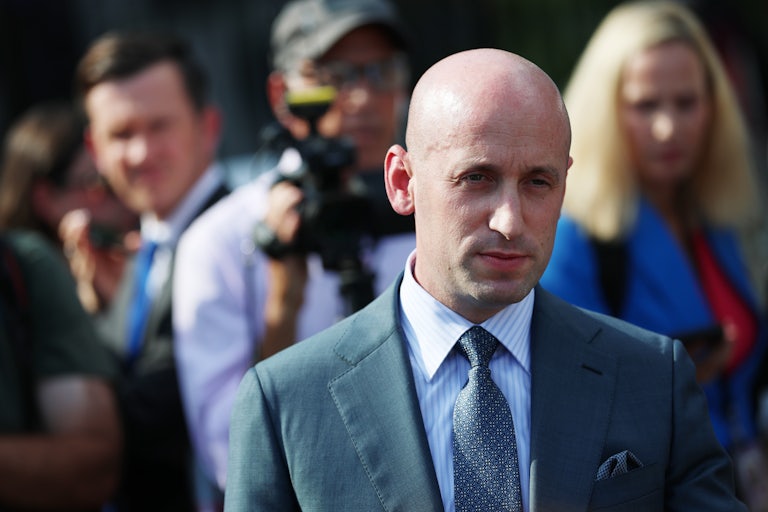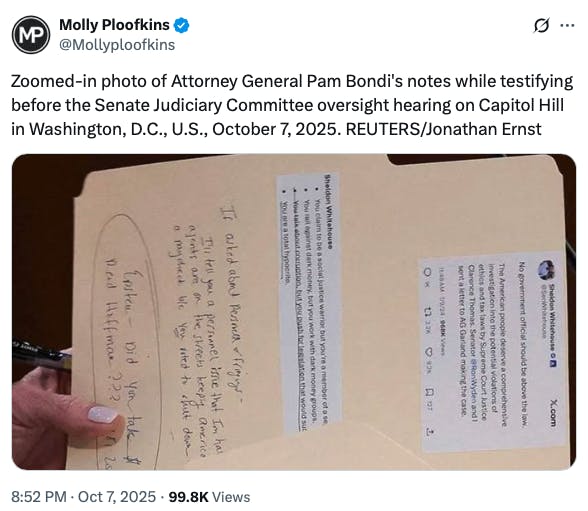Why Was The Atlantic’s David Frum Working With Israel’s Ambassador?
Hacked emails reveal the magazine editor’s shady work with Israel’s U.N. ambassador.

David Frum, a senior editor at The Atlantic, helped ghostwrite a speech for the Israeli U.N. ambassador in 2014—at the same time as he profiled the ambassador for the magazine.
Frum’s galling, undisclosed conflict of interest was exposed via the ambassador’s hacked emails, first reported by Ryan Grim and Murtaza Hussain for Drop Site.
In 2014, Israel was in the midst of waging war in Gaza, ultimately killing over 2,200 Palestinians and wounding over 11,000. It was Israel’s most devastating campaign against the Palestinians since the 1967 war, according to UNRWA. As the country faced criticism for its conduct, allies like Frum reached out to Israeli government officials to offer their support in spinning the narrative, according to Drop Site.
In Frum’s case, he could offer more to the Israeli cause than just money or positive news coverage: Before coming to The Atlantic, he had been a speechwriter for George W. Bush.
Frum contacted Ambassador Ron Prosor on July 31, 2014, during the height of the war, in an email titled, “an earlier draft of that speech I sent you.” The speech, seemingly meant to be delivered to the U.N. Security Council, described the war as “the most tenacious challenge to the free world in decades,” and asked Americans to continue to support Israel. “This version was drafted by Seth Mandel of Commentary, with whom I’ve been working,” Frum wrote in his email.
Only one day before, Frum had contacted Prosor from a different email address, with a different request: to interview him for The Atlantic. The ensuing profile praised Prosor for his “toughness,” and painted a sympathetic portrait of Israel as unfairly maligned on the global stage. “In many ways, and on many days, it feels as if the whole UN system is concerned with the monitoring and critiquing of one small member nation,” Frum wrote.
It’s not known whether Prosor delivered Frum’s speech at the U.N. (Frum was competing with British journalist Douglass Murray for the honor, the leak also reveals). But to secretly draft a speech for a foreign government official, all the while rapturously profiling him from a place of presumed journalistic objectivity, is an egregious ethical breach.
Frum is still at The Atlantic, where he recently published a piece arguing against recognizing Palestine as a state.
In response to this story, The Atlantic’s Anna Bross told TNR in a statement, “David was not an employee of The Atlantic in 2014. He did not write the speech referenced in the 2014 email. He advised a friend, pro bono.
“This was 11 years ago. David has since become an employee of The Atlantic, and like all our editorial staff, follows our rigorous standards for the disclosure of potential conflicts. Of course, our staff writers are not allowed to advise political, corporate or diplomatic figures, pro bono or otherwise.”
While Frum may not have technically been an employee, as The Atlantic claims, he did hold the title of Senior Editor at the magazine while working on contract in 2014, at the time that he sent those emails to Prosor.
This story has been updated.









